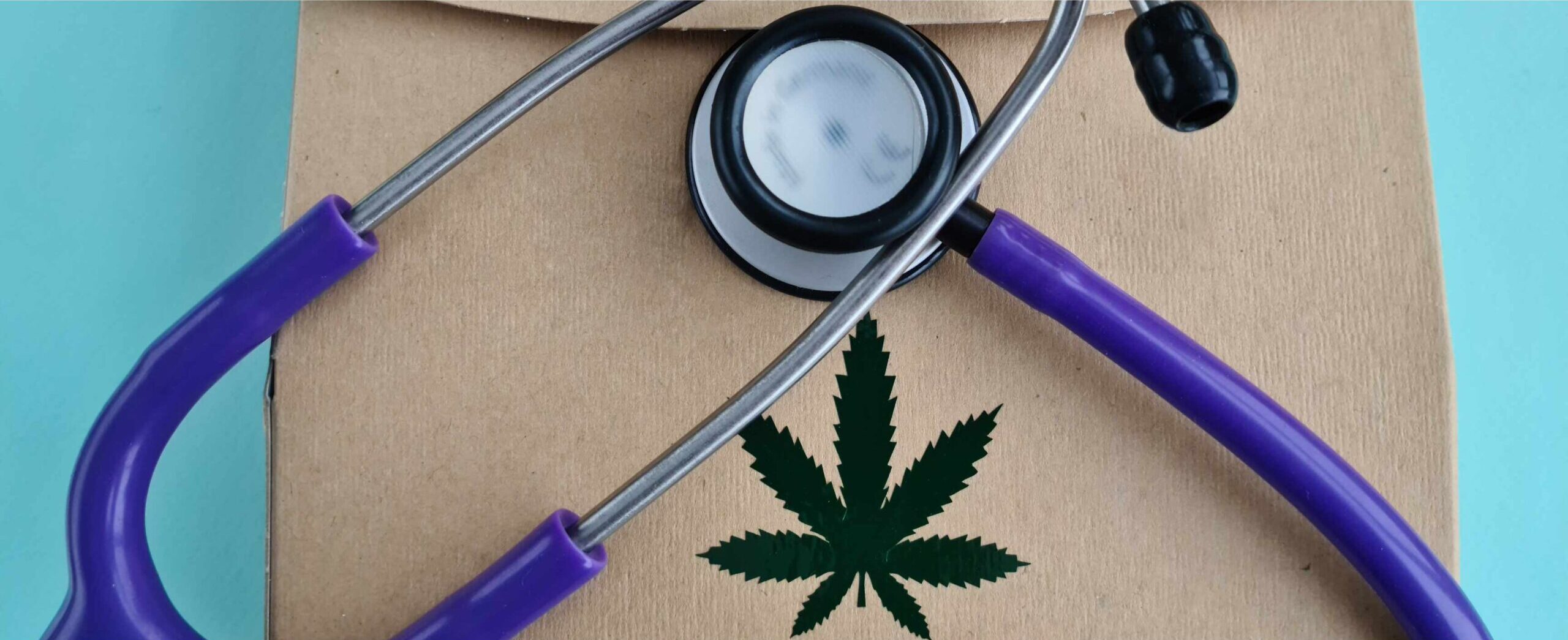Introduction to Medical Marijuana in Mississippi
For those living in the state of Mississippi who want to make use of medical cannabis as a method of improving their health, getting a medical marijuana card (MMJ Card) is the first step. There is only one problem with that: the application process requires you to have access to your medical records. These are the documents required by medical marijuana law that prove you are suffering from a qualifying condition and are what doctors base on when deciding if you should take marijuana.
The Mississippi Medical Cannabis Act allows people with certain medical conditions to buy and use medicinal marijuana. To purchase medical marijuana from a dispensary, you must have a valid medical marijuana card.
✔ Consultation with an authorized physician
✔ Requesting and submitting your medical records
✔ Applying for a medical cannabis card
Many people feel unsure about what to do, and some find it difficult. Don’t worry! This article will guide you through each step to make everything go smoothly and easily for Medical Records for MMJ Card.
What is a Medical Marijuana Card?
An MMJ card is an official identification issued by the state that permits patients to purchase and possess marijuana for medical use, in compliance with state laws. You may obtain this card by:
Scheduling an appointment with a certified physician who specializes in marijuana medicines.
Get your medical records that confirm having a qualifying condition.
Apply for the Mississippi medical marijuana program.
Receive your card and purchase medical marijuana from licensed dispensaries.
MMJ cardholders can use their card to acquire medicinal cannabis legally, but they must still follow all local regulations, such as where consumption is allowed.
Qualifying Conditions for Medical Marijuana Cards in Mississippi
To qualify for a medical marijuana card in Mississippi, you must suffer from any of the following conditions:
- Cancer
- Parkinson’s disease
- Huntington’s disease
- Muscular dystrophy
- Glaucoma
- HIV/AIDS
- Epilepsy or seizures
- Post-Traumatic Stress Disorder (PTSD)
- Multiple sclerosis (MS)
- Amyotrophic lateral sclerosis (ALS, or Lou Gehrig’s disease)
- Crohn’s disease
- Ulcerative colitis
- Sickle cell anemia
- Neuropathy (nerve damage and pain)
- Chronic pain (severe and persistent)
- Spinal cord disease or severe injury
- Severe nausea
- Cachexia (wasting syndrome)
- Any terminal illness with a life expectancy of fewer than 12 months
In case of any of these conditions, you may be eligible to be treated with medical marijuana in Mississippi. However, you will need to provide medical records showing your diagnosis.
How to Request Copies of My Own Medical Records
Under the Health Insurance Portability and Accountability Act (HIPAA) of 1996, you can access your medical records, whether electronically stored or filed on paper. Such files may include:
✔ Doctors’ notes
✔ Results of medical tests
✔ Lab reports
✔ Billing information
Steps to Obtain Your Medical Records
Step 1: Fill Out a Medical Records Release Form
To get your medical records, you must fill out a release form. You can obtain this form from the hospital, clinic, or doctor’s office where you were treated.
You can ask your healthcare provider’s Health Information Management (HIM) Department for this form. Many hospitals and clinics also offer online authorization forms.
Step 2: Provide Your Personal Information
When the authorization form is sent to you, please complete your details like:
✔ Your real name
✔ Day of birth
✔ SSN (Social Security Number)
✔ Address and phone number.
Also, you might be requested to:
✔ Dates when treatment took place for which you are seeking records.
✔ What documents are required, such as prescriptions, tests or medical history?
✔ Reason why you need them
Step 3: Make the Request
Many facilities require that you submit your request by:
✔ Taking the form directly in person
✔ Faxing, emailing or mailing
✔ Online patient portals (if they have these)
Another option is writing a letter instead of using a form. In this case, make sure to write down:
Your full name
SSN- Social Security Number
Birthdate
Address and other contacts
Email address
A list of records being requested
Date service provided from/to
Fax- mail- email – in-person pick up; if there is more than one option, indicate your preferred method and sign there.
✔ Visiting the doctors and notes from your primary care physician
✔ Reports of a specialist (if you have been to a neurologist, oncologist or other specialists)
✔ Notes on hospitalization
✔ Laboratory results.
How Long Does It Take to Get Your Medical Records?
Most Mississippi healthcare providers will process medical record requests within 7-14 days, but HIPAA allows up to 30 days. If you need your records sooner, consider requesting expedited processing.:
✔ Call the provider to check on their status
✔ Request expedited processing
✔ Pick them up yourself if they are available for that.
Can Someone Else Request My Medical Records?
Yes! The following individuals can request your medical records according to HIPAA:
✔ A parent or guardian who has taken care of a minor patient
✔ A caretaker or advocate with consent in writing
✔ An authorized representative like someone with medical power of attorney).
If you want a friend or family member you trust to ask for these reports, sign a release form so they can be granted access.
Using Your Medical Records for MMJ Card
Each time you receive your medical records, you must carry them over to an expert Mississippi Physician-registered Medical Marijuana doctor. The doctor will:
✔ Peruse your medical history
✔ Verify your diagnosis
✔ Give a physician’s certification for the application of your MMJ card
After receiving approval from a physician, apply for your MMJ card at the Mississippi Department of Health.
Do I need medical records for a Mississippi medical marijuana card?
Oh, yes! If you’re applying for MMJ in Mississippi, make sure that you have some medical records that indicate the following:
- Your qualifying health condition
- Your treatment history
- A recommendation from your doctor.
- Also, you must include:
- Forms of residency like driver’s licenses or lease agreements;
- Doctors’ recommendations.
If you have inquiries about qualification, the process itself or how to get an MMJ card in MS, go to:
🔗 www.ezmedcard.com – Get professional advice and apply for an MMJ card conveniently!
Final Thoughts
Getting a medical marijuana card in Mississippi is an easy procedure; however, asking for medical records is an important step. Your MMJ application may be delayed or incomplete if the required documents are missing, but you can often resolve this by providing additional records or clarifications.
By adhering to the steps provided here, one can quickly request their medical records and obtain approval from their physician before finally submitting their MMJ card application without any stress.
Visit www.ezmedcard.com today to schedule your Medical Marijuana Consultation and begin your journey towards safe and legal access to medicinal cannabis in Mississippi.
How can Medical Cannabis help Mental Health Patients in Mississippi?
Medical cannabis can help mental health patients by alleviating symptoms of conditions like anxiety, depression, and PTSD. The cannabinoids in cannabis, such as CBD, may promote relaxation and balance brain chemicals, improving mood and stress management.
What is Delta-9 THC, and how does it affect patients?
Delta-9 THC is the main psychoactive component of cannabis. It can provide relief from pain, anxiety, and nausea but may also cause a "high." Patients using medical marijuana may experience different effects depending on the THC concentration and their individual tolerance.
Can Medical Marijuana improve sleep in Mississippi?
Yes, Medical Marijuana for improving sleep has been reported to help patients suffering from insomnia or other sleep disorders. Cannabis may promote relaxation, reduce anxiety, and enhance the quality of sleep, especially with strains high in CBD.
Is Hemp legal in Kentucky, and how does it relate to medical cannabis?
Yes, Hemp is legal in Kentucky, where it is cultivated for various products. While it doesn't have the same THC levels as cannabis, hemp-derived CBD is widely used for its potential health benefits, including managing anxiety, pain, and improving sleep.
How long does Medical Cannabis stay in the body?





